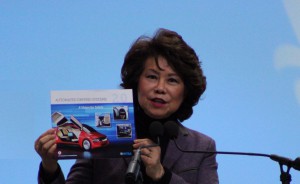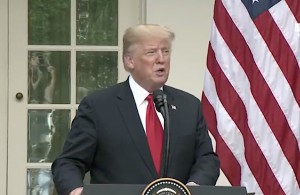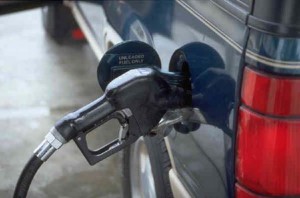
Transportation Secretary Elaine Chao unveiled the SAFE vehicles rule, rolling back Corporate Average Fuel Economy levels to current levels.
The Department of Transportation today revealed its intention to rollback Corporate Average Fuel Economy standards, calling the new plan the Safer Affordable Fuel-Efficient Vehicles Rule, or SAFE rule.
The plan calls for fuel economy levels for vehicles built in model years 2020–26 to remain at the current fuel economy standard. The previous mandate called for vehicles to average 54.5 mpg by 2025.
DOT is seeking public comment for the next 60 days on what could be the next standard for fuel economy. The centerpiece of the EPA/NHTSA CAFE rollback is the claim that the agencies’ preferred option would save consumers $2,340 per vehicle, compared with keeping the old standard.
“There are compelling reasons for a new rulemaking on fuel economy standards for 2021-2026,” said Secretary Elaine L. Chao in a statement.
(Trump mileage rules could cost drivers billions of dollars. Click Here for the story.)
“More realistic standards will promote a healthy economy by bringing newer, safer, cleaner and more fuel-efficient vehicles to U.S. roads and we look forward to receiving input from the public.” Chao also noted the agencies are in favor of a 50-state solution, rather than allowing California to retain its Clean Air Act exemption.
Keeping the previous standard, DOT officials claim, would add a cost burden to consumers. They argue that this added cost would otherwise lead some consumers to delay purchasing new vehicles and thus mean less clean, less safe vehicles would remain on the road longer.
Freezing the standards at 2020 levels, NHTSA Deputy Administrator Heidi King says, would save 1,000 lives during to a conference call.
(Click Here for more about EPA, DOT eliminating California’s Clean Air Act exemption.)
She said that mandating ever cleaner, more efficient vehicles “won’t provide the greater good until they get into the hands of consumers”, so, by holding down costs, more consumers will get into new vehicles sooner.

President Trump promised automakers he would ease tough fuel economy standards and appears to be moving in that direction.
DOT officials cited a 2018 study by the National Highway Traffic Safety Administration, or NHTSA, shows new model year vehicles are safer, resulting in fewer deaths and injuries when involved in accidents, as compared to older models.
Therefore, the Administration is focused on correcting the current standards that restrict the American people from being able to afford newer vehicles with more advanced safety features, better fuel economy, and associated environmental benefits.
(To see more about the CAFE rollback plan, Click Here for more.)
Bill Wehrum, EPA Assistant Administrator for the Office of Air and Radiation, said, “We need to find that sweet spot … where it doesn’t start to have a detrimental effect on highway safety.” NHTSA and the EPA are collecting the testimony from the public regarding the rule change during the next 60 days.

